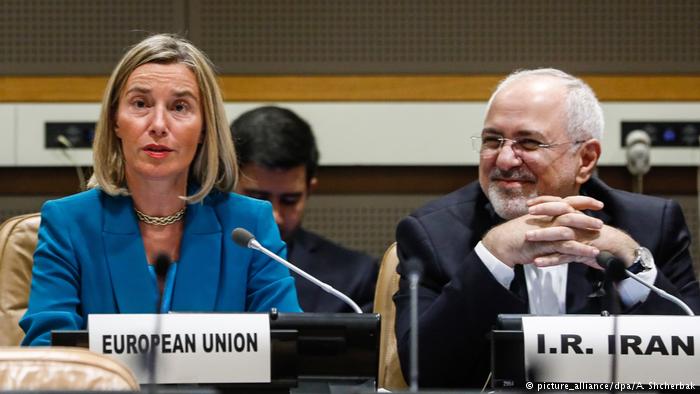‘Special Vehicle’ to facilitate business with Iran
September 25, 2018 | Expert Insights

The European Union said on Monday that it would establish a special payment channel to allow European and other companies to legally continue financial transactions with Iran while avoiding exposure to U.S. sanctions.
Background
Iran’s nuclear program was first launched in the 1950s, with help from the United States. Iran signed the Nuclear Non-Proliferation Treaty in 1970. Support from the West continued until the Iranian Revolution and the ascent of Ayatollah Khomeini into power in 1979. Iran’s nuclear program has been a source of concern for the international community since then.
During the International Atomic Energy Agency’s (IAEA) investigations in the country, it was revealed that Iran had not declared a number of its nuclear activities and was not in compliance with the Non-Proliferation Treaty. In 2006, the country also refused to suspend its uranium enrichment program. The United Nations consequently imposed a number of sanctions on the nation. By 2015, the nation had lost billions of dollars due to these sanctions; and an estimated $100 billion in oil revenue alone.
The Joint Comprehensive Plan of Action (JCPOA) is a comprehensive agreement between the P5+1 countries (France, China, Russia, US, UK, and Germany), European Union and Iran to prevent nuclear arms development in Iran in exchange for the removal of sanctions.
Under the JCPOA signed in Vienna, Iran agreed to scale back the country's uranium enrichment programme. In exchange, UN-approved sanctions were lifted, and Tehran was allowed to resume trading oil and gas on the international market. A total of $100bn in frozen Iranian assets were also released.
President Trump has been a long-time critic of the deal and pulled out of the pact in May 2018. Washington also imposed a series of additional sanctions on Iranian entities, individuals and foreign companies.
Read more of our extensive analysis of Iran and the EU here and here
Analysis
European Union foreign affairs chief Federica Mogherini said that the remaining signatories are committed to Iran and will create special payment channels to do business with the country despite the US sanctions.
This announcement came following a ministerial meeting of the remaining signatories of the Joint Comprehensive Plan of Action (JCPOA) deal at the sidelines of the UN General Assembly.
Mogherini stated that "Mindful of the urgency and the need for tangible results, the participants welcomed practical proposals to maintain and develop payment channels, notably the initiative to establish a special purpose vehicle to facilitate payments related to Iran's exports, including oil.”
In addition, statements by the five nations –Russia, the UK, Germany, China and France– confirm that Iran has been complying with its end of the agreement. The group also said that they are determined "to protect the freedom of their economic operators to pursue legitimate business with Iran." The foreign policy chief also added that they are still working out the technical details, however, she explained that member states will have to create a "legal entity" to ensure legitimate financial transactions can be made with Iran. The payments will be under the “European Union law and could be open to other partners in the world.”
This announcement is timely as it comes a day before President Trump and President Hassan Rouhani separately address the UN General Assembly. Furthermore, the second round of sanctions imposed by the US will come into effect in November. Iran’s exports have been deeply hit by the sanctions. The commodities trader, Trafigura estimated that Iran will eventually export less oil than was initially expected when the United States first announced it would reimpose sanctions on Tehran. As a result, it would increase the price of oil.
Ben Luckock the co-head of oil trading at Trafigura told Reuters that, “I think the consensus has moved to it’s going to be well beyond 1 million bpd that’s cut, and maybe 1.5 million bpd.”
Counterpoint
President Trump has called the deal "one-sided", "disastrous" and the "worst I've ever seen". The US has been pushing its allies to cut all business with Iran, threatening European companies with secondary sanctions. Hence many analysts doubt if this new mechanism is practical given that the US could modify its sanctions to include any new system.
The United States also said that it will exert "maximum economic and diplomatic pressure" on other countries to stop buying crude oil from Iran. Washington has threatened the JCPOA’s remaining signatories with punitive measures if they engaged in trade and investment with Tehran.
Assessment
Our assessment is that this special purpose vehicle will indeed in the short term help the Iranian economy that has been on a downward slope. The economic hardships that the country faces will not end soon, despite the regime knowing well that the new sanctions will grind the country to a halt. We believe that though the US has previously threatened Iran’s oil customers, this special payment method could result in new actions by President Trump.








Comments